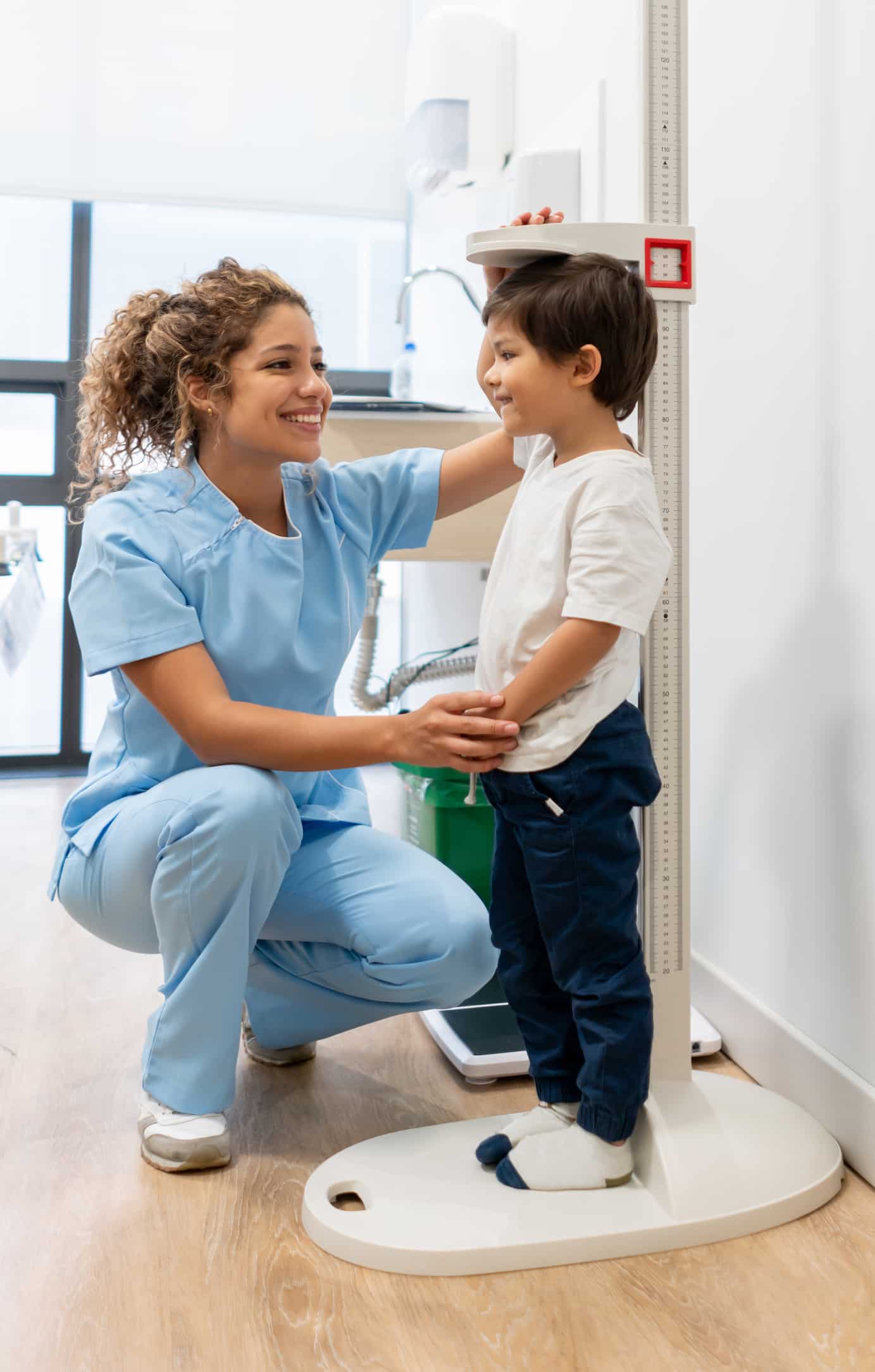What to Know About Well-Child Visits
Common Questions About Well-Child Visits
When Should Child Wellness Visits Begin?
Wellness visits usually start shortly after the baby’s birth and continue until he or she reaches 20 years of age.
How Often Does a Child Need to Have a Wellness Check?
Pediatricians recommend that children under the age of 2 have multiple wellness visits a year. Once the child reaches the age of 2, annual wellness visits should be sufficient.
What Is the Goal of Well-Child Visits?
Besides vaccinations, child wellness visits are designed to stress how important continuity of care is in the management of a child’s overall health to prevent gaps in his or her medical care. Preventing gaps in treatment is vital because if a health issue arises, the likelihood of the problem being discovered during its early stages increases substantially with consistent wellness visits.
What Should Parents Expect at a Child’s Checkup?
Besides administering vaccines and completing neonatal screening tests, the pediatrician also performs a physical exam.
This exam includes weighing the baby and measuring his or her height. Gathering this information during each visit allows the doctor to monitor the baby’s growth and development, which can be used to identify potential problems in these areas.

Child Wellness Visits from Newborn to 12 months
During these visits, the baby usually receives some type of vaccination. The pediatrician also monitors the growth of the baby’s head, asks questions about his or her sleeping schedule and eating habits as well as the frequency of bowel movements, urination, and the baby’s overall behavior. Parents should feel free to ask about anything that concerns them (e.g., bowel consistency/color, crying after feedings, etc.).
The pediatrician can provide parents with guidance about when and how to begin giving the baby solid foods.
Well Child Visits from 12 to 24 Months
Visits to the pediatrician during the child’s toddler years are extremely important because special attention is given to the child’s overall growth and development. The pediatrician watches for anything unusual related to his or her development.
Well-Child Visit Schedule from The American Academy of Pediatrics
From newborn to 12 months, the baby will have 7 checkups.
From 12 to 24 months, 4 checkups.
24 months to 20 years of age, 1 checkup a year.
If a child has developmental problems or a health issue, additional visits may be necessary. A more detailed table from the AAP can be found here.

Questions to Ask at Your Child’s Wellness Visit
- Which vaccine is being administered today? What does this protect my child from?
- Is my child’s development on target for her age?
- Are there any infectious diseases that I need to know about? If so, how can I protect my child?
- May I get a copy of my child’s vaccination record?
- When can my child graduate from a car seat to a booster?
Parents who have a specific concern should feel free to ask the pediatrician about it. For example: Why does my child always have dark circles under her eyes?
The Importance of Well Child Checkups
These checkups can help prevent health care problems, which is why even a healthy child needs to have wellness visits.
Contact the expert pediatricians at Cameron Hospital to discuss your child’s health, ask questions, and learn strategies to keep your child healthy throughout their life.

©2025 Cameron Memorial Community Hospital
416 E. Maumee Street, Angola, IN 46703
